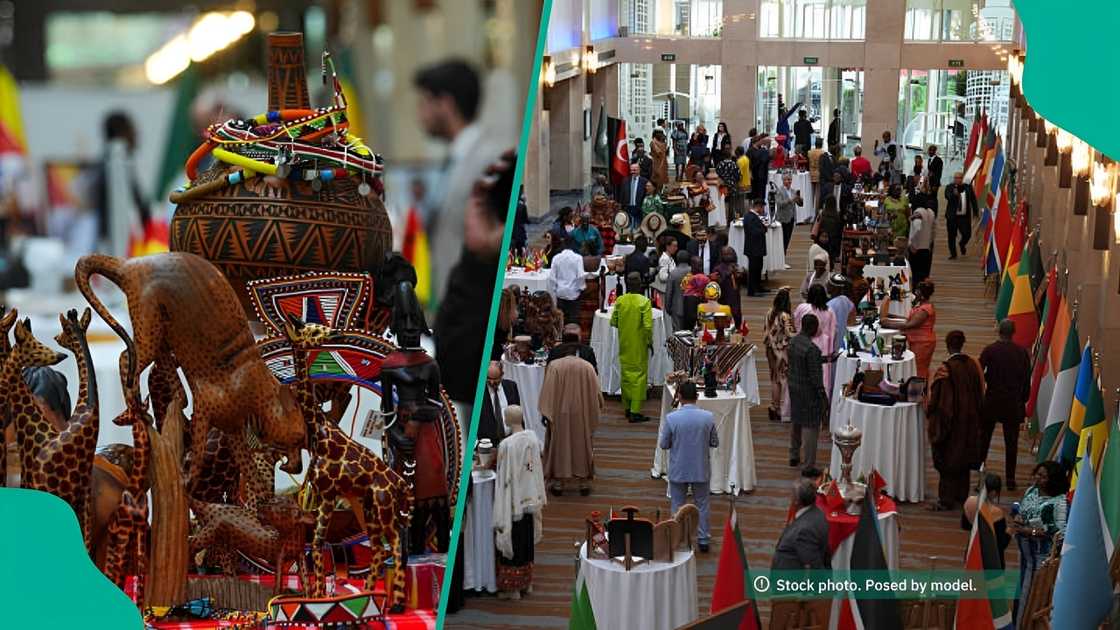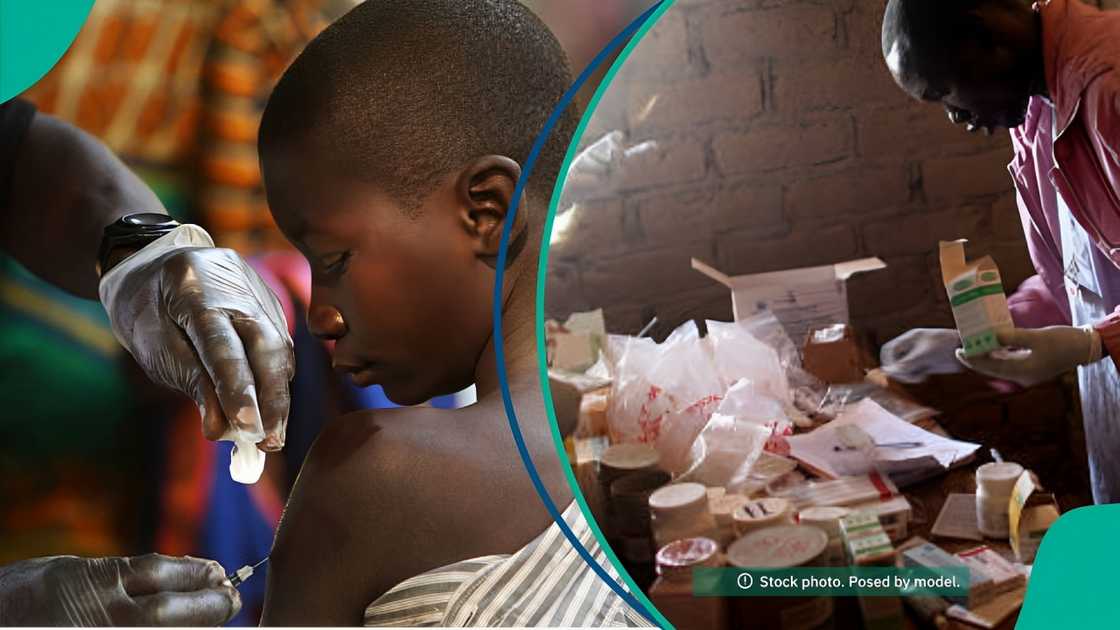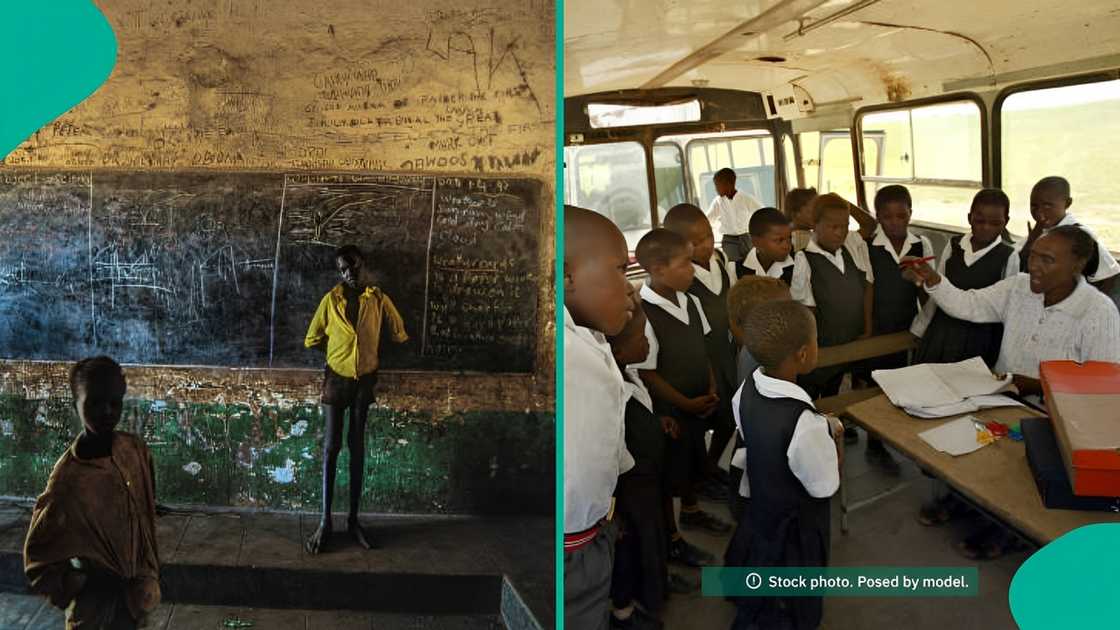Editor’s note: In this piece, strategical futurist Emmanuel Ezeoka questions Africa’s propulsion for reparations, arguing that earlier demanding justness from erstwhile colonisers, the continent indispensable code its enactment failures and the mundane struggles of its citizens.
The inconvenient truth: What Africa owes
On May 25th, 2025, the aerial successful Addis Ababa echoed with words similar justice, reparations, and solidarity. Another Africa Day. Speeches thundered. Flags waved. Fists raised. And the outcry rang out: “We request justness and reparations!"

Source: Getty Images
But beneath the noble connection and Pan-African symbolism lies a unsafe trend: the weaponization of the reparation question arsenic a governmental smokescreen — 1 that distracts from the chronic dysfunction and nonaccomplishment of enactment astatine home.
Let’s beryllium clear: colonialism and slavery were crimes against humanity. Generations of Africans were chained, branded, auctioned, and scattered crossed continents similar cargo—families ripped apart, languages extinguished, and civilizations destabilized. During assemblage rule, full economies were engineered to service overseas masters. Minerals were ripped from the earth, rubber from our forests, and lives from our soil—often with the lash oregon the gun. In Congo alone, nether Belgian rule, an estimated 10 cardinal people perished successful forced labour regimes. Across the continent, accepted institutions were dismantled, spiritual systems demonized, and taste pridefulness eroded. The request for reparative justness is not lone valid — it's overdue.
But here’s the inconvenient truth: Africa is bleeding not conscionable from aged scars alone, but from caller wounds inflicted by its ain leaders. And they don’t privation you to notice. The aforesaid leaders calling for reparative justness from the West often replicate assemblage hierarchies wrong their ain nations, hoarding wealth, centralizing power, and denying justness to their ain citizens.
State of affairs aft independence
In the 1960s, Africa’s independency leaders promised a renaissance—Nnamdi Azikiwe, Kwame Nkrumah, Julius Nyerere, & Patrice Lumumba. They envisioned a united, prosperous continent. But aft their departure—whether by death, coup, oregon displacement—the baton fell into the hands of acold little inspired people. It’s been implicit 60 years since astir each African nations gained independence. Successive African leaders person held the reins for six decades—long capable to physique thing better. So, let’s unfastened the study paper and inquire the hard question: How person they fared?
As of May 25, 2025, successful galore African countries, large women inactive trek kilometers to scope underfunded clinics. If they past childbirth, it's often not due to the fact that of the system, but successful spite of it. In sub-Saharan Africa today, 545 women dice for each 100,000 unrecorded births—more than treble the planetary mean of 223, and astir 100 times that of high-income countries.

Source: Getty Images
Children inactive beryllium successful overcrowded classrooms with breached windows and nary electricity, taught by underpaid, unqualified teachers utilizing tattered textbooks—if any. Nigeria unsocial accounts for astir 20 cardinal out-of-school children, the highest fig globally.
Clean h2o is present a luxury. In countless communities, families inactive fetch it from streams shared with livestock. Power outages are the norm, not the exception, adjacent arsenic implicit 600 cardinal Africans inactive deficiency entree to electricity. In Sierra Leone, 1 successful 4 radical inactive deficiency basal sanitation.
More than a 4th of the world’s bare unrecorded successful Africa. One successful 5 radical connected the continent is considered chronically malnourished. By 2000, 1 successful 2 mediocre radical successful the satellite lived successful Africa. In 2024, that fig has worsened—62% of the world’s utmost mediocre are present African. Africa present hosts the poorness superior of the world—Nigeria.
This scorecard reeks of nonaccomplishment and inefficiency. It’s convenient to displacement blasted to historical colonialism erstwhile present-day oppression is often local, homegrown, and avoidable.
Diplomatic misdirection
Now, representation African leaders lasting connected planetary platforms, demanding reparations for colonial-era wrongs. Meanwhile, acquisition budgets vanish into phantom projects, and their convoys alert overhead successful luxury jets. Natural assets wealthiness is siphoned offshore, portion young graduates hawk sachet h2o successful traffic.
These wounds—silent, modern, self-inflicted—are nary little fatal. And they don’t privation you to notice. Because arsenic agelong arsenic the satellite stares backward astatine assemblage crimes, nary one’s watching the crimes being committed today. This juxtaposition isn't fictional—it’s the world for galore African countries.
Reparations are a motivation demand. But they are not a substitute for leadership. Before we pursuit restitution abroad, we indispensable face betrayal astatine home.
Follow the money
According to the African Development Bank, Africa loses an estimated $88.6 cardinal annually to illicit fiscal flows—more than it receives successful authoritative improvement aid. That’s astir $900 cardinal each decade, spirited distant done corruption, taxation evasion, and shady deals. Compare that to the speculative anticipated figures of reparations—still mostly symbolic—and 1 begins to spot the standard of the hypocrisy.

Source: Getty Images
And who’s doing the looting? Not erstwhile colonizers, but existent African leaders—the precise ones starring the reparations charge. In Nigeria, the infamous Abacha loot—repatriated successful aggregate tranches—has go a lawsuit survey successful cyclical embarrassment. Billions recovered. Billions re-looted. And yet, the telephone for much restitution remains unabated.
Meanwhile, nationalist spot successful African governments is plummeting. Afrobarometer information reveals a increasing disillusionment, peculiarly among the 600 cardinal youths. Why? Because they spot done the charade. Among the countries whose leaders outcry the loudest astir reparations, galore fertile among the world’s astir corrupt. Public spot successful governance is plummeting. In immoderate cases, lone little than 20% of citizens spot their authorities to walk money responsibly.
So, what’s truly going on?
Reparations person go a rhetorical smokescreen—a motivation cudgel wielded not to uplift the African citizen, but to obscure the failures of leadership. It is easier to blame Europe than to hole breached hospitals. Easier to outcry “Justice!” successful New York than to prosecute a corrupt curate astatine home. But justness begins astatine home. And earlier Africa can currency the reparations cheque, it indispensable wage its interior debts.
The existent reparations Africa needs
Let’s motorboat an “African Internal Reparations First” Compact—a continental inaugural requiring African states to:
- Establish a Pan-African Accountability Court—independent, civil-society-led, empowered to analyse and prosecute expansive corruption (past and present) and prehend ill-gotten gains.
- Channel those funds into nationalist infrastructure, education, and healthcare, tangibly improving the lives of citizens.
- Publish yearly “People’s Reparations Reports” detailing what was recovered, wherever it went, and who benefited.
And here’s the boldest determination yet: make reparations conditional. Any aboriginal funds received from erstwhile colonizers indispensable beryllium ring-fenced successful improvement spot funds, with ironclad transparency mechanisms. Let these funds physique superior wellness centers, decentralized learning ecosystems (schools), and caller towns, not 2nd homes successful Switzerland. Reparations should ne'er go 1 much windfall for the ruling class.
Africa cannot outsource its dignity. Not successful property conferences. Not successful overseas vaults. Not successful bare slogans. But successful clinics. In schools. In trust. That’s wherever existent reparations begin.
We cannot march to state with 1 manus outstretched and the different successful the cooky jar.
Pen dropped. Now let’s get to work!
Emmanuel Ezeoka is an entrepreneur and strategical argumentation futurist focused connected systemic transformation, peculiarly done the Global Africa Agenda. With heavy acquisition successful planetary development, technology, infrastructure, and aboriginal metropolis design, Ezeoka leads the complaint for a private-sector-driven translation for the improvement of holistic, empowered ecosystems. Committed to planetary improvement equity, helium writes from Abuja, Nigeria. Contact: [email protected]Disclaimer: The views and opinions expressed present are those of the writer and bash not needfully bespeak the authoritative argumentation oregon presumption of Legit.ng.
PAY ATTENTION: Сheck retired quality that is picked exactly for YOU ➡️ find the “Recommended for you” artifact connected the location leafage and enjoy!
Source: Legit.ng
.png)
.png) 1 month ago
19
1 month ago
19


